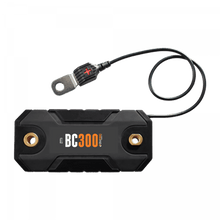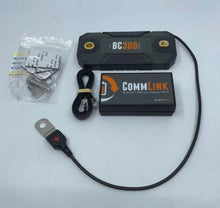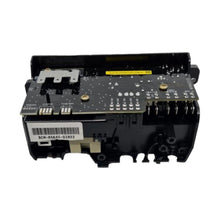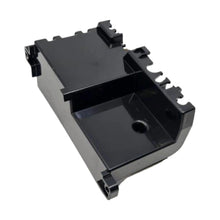Fusing and Cables for Inverters and Batteries
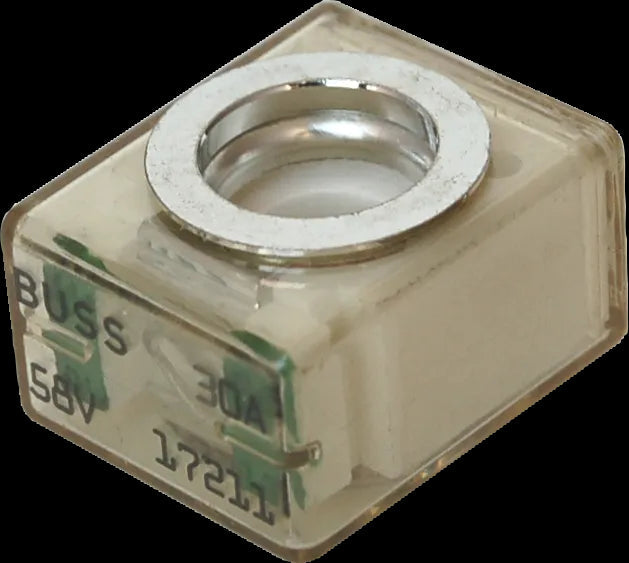
Fusing and Cables for Inverters and Batteries: A Guide for Caravan and RV Owners
When it comes to powering your caravan or RV with a battery system and inverter setup, selecting the right cables and fuses isn't just good practice — it's essential for safety and performance. Whether you're running a 300W inverter for charging laptops or a 3000W unit to run a microwave or air fryer, understanding the role of correct cabling and fusing can protect your vehicle, your devices, and most importantly — your family.
- Why fuses are crucial in 12V systems
- How to size cables correctly for inverters
- Fuse sizing based on battery and inverter load
- Tips for selecting the safest components
Why Fusing Is Crucial in Battery & Inverter Setups
Fuses are your first line of defense in a DC system. Their role is simple but critical: to break the circuit if current exceeds safe levels. Without a fuse, a short circuit (caused by damaged wires or connectors) can lead to overheating, melting insulation, and fires.
Imagine a loose spanner falling across your battery terminals — without a fuse in line, the electrical surge could vaporize cable insulation in seconds. A fuse ensures that such surges don't reach your devices or create a hazard in your van.
🔌 Pro tip: Always install a fuse within 150mm of the battery's positive terminal in any 12V or 24V system.
We like to use these especailly on Lithuim Systems:
Cable Sizing: Get It Right for Efficiency and Safety
Using undersized cables in your inverter setup is a recipe for voltage drop, heat buildup, and even premature appliance failure. DC electricity has far more current flowing than 240V AC systems, meaning cable thickness is crucial over longer runs.
Here's a simple rule of thumb:
| Inverter Size | Cable Size (at 1–2m run) | Fuse Size |
|---|---|---|
| 300W | 6mm² | 40A |
| 600W | 8–10mm² | 60A |
| 1000W | 16mm² | 100A |
| 1500W | 25mm² | 150A |
| 2000W+ | 35–50mm² | 200–250A |
⚠️ Always check manufacturer recommendations; cable size also depends on total run length and voltage drop tolerances.
Longer cable runs require heavier cables. For example, if you're installing your inverter 3 meters away from the batteries, you may need to increase your cable to 35mm² even for a 1000W inverter setup.
🧰 Handy Tip: Use a cable sizing calculator that factors in voltage (12V or 24V), current draw, and distance.
Fuse Sizing for Inverters and Batteries
Your fuse needs to protect the cable, not just the inverter. That means its size should never exceed the amp rating of your wiring. If you're running 25mm² cable, your fuse should not exceed 150A. (The amp rating of the wire is the melting temperature of the wiring).
Fuse types commonly used in RV installations include:
- ANL fuses: Ideal for inverter setups (easy to mount, high current capable)
- MEGA fuses: Compact and high-current-rated - great for DC distribution
- Blade fuses: For lower current circuits (lights, pumps, USB chargers)
🔋 Don’t forget to fuse both your inverter positive and your battery charger/solar input lines for maximum system protection.
You can find high-quality fuse blocks and heavy-gauge twin-sheathed cable in the Electrical section of Everything Caravans.
Common Mistakes to Avoid
- Using household extension cords for connecting 12V inverters – these are unsafe and not made for high current DC
- Skipping fuses thinking the inverter has internal protection – this doesn’t protect the battery or wiring (wiring is the main cause of fires)
- Running cables too close to sharp edges or hot surfaces – always use grommets or conduit
- Double-check polarity – incorrect wiring can damage electronics instantly
Conclusion
Inverters are a fantastic way to bring 240V to your off-grid setup, but only if connected with the right gauge cable and fuse protection. Getting this right ensures the system is efficient and most importantly, safe.
Always check the wiring and all connections for any heat after finishing and runnning your system. You should not have any heat at any connection or wiring run. If you do then the connections are poor or the wiring is undersize.
If you're not sure which fuse or cable size is right for your setup, our team at Everything Caravans is here to help. With over 5,000 caravan products and hands-on expertise, we’ll get you powered up the right way.
👉 Need help choosing the right cable or fuse kit? Contact our team or drop into our store – we’re open Monday to Saturday.




